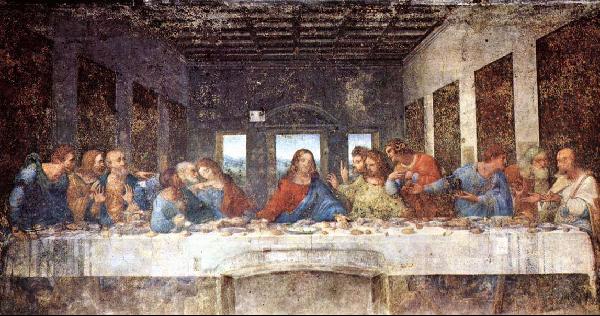1 Timothy 3:15 "but in case I am delayed, I write so that you will know how one ought to conduct himself in the household of God, which is the church of the living God, the pillar and support of the truth."
Introduction:
When our church family gathers together for times of worship I often will tell them: "today we did not come to church, the church came here". When Paul is writing his first letter to Timothy, the key verse of the whole book, 1 Timothy 3:15, expresses his intent: ..."I write so that you will know how one ought to conduct himself in the household of God." Pastor and Bible teacher Dr. John MacArthur expressed once in a sermon that the phrase used later in the verse, "household of God" could be easily rendered "the living God's house". As Paul instructs this young pastor named Timothy about his responsibilities as a Pastor and the responsibilities of the membership assigned to his care, we see clearly God's vision for what every local church should aim for in living as His house.
Where we see the church referred to as God's house
As individual Christians we are the temple of the living God. (1 Corinthians 3:16) Further study reveals that the concept of God's house extends over all true born again Christians who make up the true church the world-over. 1 Corinthians 6:16 reminds us that "...we are the temple of the living God...". Ephesians 2:21-22 is even more explicit - "in whom the whole building, being fitted together, is growing into a holy temple in the Lord, 22 in whom you also are being built together into a dwelling of God in the Spirit." With regards to what God's house, the church, looks like in action, 1 Peter 2:5 explains - "you also, as living stones, are being built up as a spiritual house for a holy priesthood, to offer up spiritual sacrifices acceptable to God through Jesus Christ." 1 Peter 4:17 draws the dividing line between true believers and non-believers by noting - "For it is time for judgment to begin with the household of God; and if it begins with us first, what will be the outcome for those who do not obey the gospel of God?"
Plainly scripture ascribes this description of the church the world over as being God's house. Local churches fit under this category and throughout the book of Acts, places such as Acts 2:38-42 indicate that the inaugural first church on Pentecost met together as a "flesh and blood" temple. To become a part of God's church the world over, one must be born again by the Spirit of God through faith. To become initiated into the local church, all truly regenerate believers must be subsequently baptized. The SBC Baptist Faith & Message 2000 explains: "A New Testament church of the Lord Jesus Christ is an autonomous local congregation of baptized believers, associated by covenant in the faith and fellowship of the gospel". This description fits the Biblical pattern and order of Acts 2:38-42, where we see people believing and repenting of their sins in salvation, followed by believer's baptism and then counted among the membership of the church at Jerusalem.
Point of Application
With the church defined Biblically as "God's house" and specifically here in 1 Timothy 3:15 as the living house of the living God, how is it that we are to live as God's house? The point of application for today's post is: "Living as God's house is rooted in God-centered details practices". In looking over 1 Timothy, we can note three major God-centered realities that make it possible for a church to live as God's house:
1. God-centered pastors. 1:1-14
2. God-centered fellowship. 2:1-3:16
3. God-centered living. 4:1-6:21
Living as God's house requires God-centered pastors. 1 Timothy 1:1-14
What is a God-centered pastor according to 1 Timothy 1? God-centered pastors are those men who are passionate (1:1-17), who preach the Gospel (1:8-14) and who point to the Great Shepherd (1:15-20).
When we say that a God-centered pastor is to be passionate, what ought he to be passionate about? 1 Timothy 1:1-4 indicates that the pastor needs to be passionate about the truth, both in affirming it and defending it. The God-centered pastor secondly needs to be passionate about his people. As one preaching professor told me years ago: "pastors are not cattlemen driving a heard but shepherds leading a flock".
We can also note that a God-centered pastor needs to preach the Gospel by beginning with the bad-news as found in the law of God (1 Tim 1:8-10) and then bringing sinners and lost church members alike to the cross (1 Tim 1:11-14) These two ideas of being passionate and preaching the Gospel leads naturally to the third responsibility of a God-centered pastor - pointing to the Great shepherd. (1 Timothy 1:15-20). The greatness of the Shepherd, Jesus Christ, is seen in how he saves us from our wretched condition (1 Tim 1:15-17) and how worthy He is to live for (1 Tim 1:18-20). So living as God's house requires a God-centered pastor. Now notice the second requirement...
Living as God's House requires God-centered fellowship. 1 Timothy 2:1-3:16
What is fellowship? Fellowship in the original language of the New Testament means to "have in common". What do we have in common? Jesus Christ and Him crucified, buried, risen and exalted. The fellowship of God's house has to do with life as it is within the walls of the church. What ought we to see when we come to the living God's house? 1 Timothy 2:1-3:16 spells out what ought to be present.
First, spiritual membership. The emphasis upon both the men and women of the church engaging in prayer and holy living depicts life flowing from the heart to the actions within the body of believers toward one another, as expressed in 1 Tim 2:1-15. A second trait of God-centered fellowship has to do with sound-leadership. Now this may sound identical to what we just covered in the first part of this post, however the need for Godly leadership to lead a God-centered fellowship of saints can never be over expressed. Thus Paul spells out sound leadership in 1 Timothy 3:1-13 by way of describing Pastors and Deacons. Then the third characteristic of God-centered fellowship has to do with being saturated with Jesus as seen in 1 Timothy 3:14-16. Jesus' incarnation, life, mission and ascension ought to be second nature to those who are truly born-again.
So we have seen that as Christians, living as God's house, the Holy Ghost in 1 Timothy expresses the necessity for God-centered pastors and God-centered fellowship. These first two components have to to with life within the walls of the church. However we are not called as the Living God's House to be a citadel within which we huddle but an embassy from which we tell others about Jesus until He comes. The final necessity for living as God's house is found in 1 Timothy 4:1-6:21, namely...
Living as God's House requires God-centered living. 1 Timothy 4:1-6:21
So what should the world see of the church according to 1 Timothy 4:1-6:21? First, maturity. The local church and its members ought to be people who are spiritually mature, that is to say, people who know good from evil (1 Timothy 4:1-10) and who know their Bibles (1 Tim 4:11-16). One of the clearest definitions of spiritual maturity found anywhere in the Bible, Hebrews 5:12-14, emphasizes these two points. So God centered-fellowship in the church is characterized by maturity.
Secondly, God-centered living needs to be expressed in relationships (1 Timothy 5:1-16), as well as other areas such as the example of Godly leadership to others (5:17-25); the workplace (6:1-2); attitudes (6:3-5) and possessions (6:6-9). Why are these areas mentioned? Because it is in these key areas where a Christian's lifestyle is most sorely tested. Relationships stretch us, being an example brings with it accountability, how we act before co-workers, our attitudes and how we handle possessions all contribute to testing how serious we are in living for God in this world.
How is success measured in God-centered living among pastors and church members living as God's House in an unbelieving world? Faithfulness. Notice 1 Timothy 6:20-21 "O Timothy, guard what has been entrusted to you, avoiding worldly and empty chatter and the opposing arguments of what is falsely called “knowledge”— 21 which some have professed and thus gone astray from the faith.Grace be with you." As God's House, success is ,measured by faithfulness. As the old saying goes: "What is done on this earth will pass, but what is done for Christ will last."
Closing thoughts
The point of application for today's post was: "Living as God's house is rooted in God-centered details practices". In looking over 1 Timothy, we noted three major God-centered realities that make it possible for a church to live as God's house:
1. God-centered pastors. 1:1-14
2. God-centered fellowship. 2:1-3:16
3. God-centered living. 4:1-6:21
May every local Bible-believing church, of whatever denomination and stripe, aim to adhere what is written in 1 Timothy regarding living as God's house.







